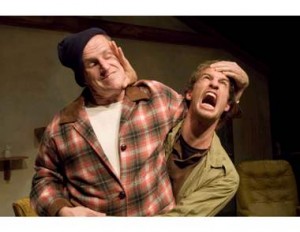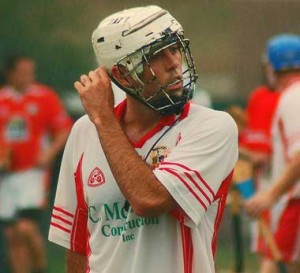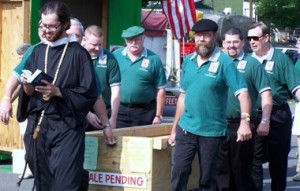Just posted on the Philadelphia Ceili Group Membership list:
Kathleen Gambon Erdei passed away Tuesday evening, July 31, after a two-week battle with what was diagnosed “raging cancer” at the Central Montgomery Medical Center in Lansdale, one month shy of her 72nd birthday. She had come down with Lyme disease two years earlier, and her system suffered greatly as a result.
Beloved in Philadelphia’s Irish-American community for her work toward peace in Northern Ireland since the 1970s, Kathleen turned on two generations of young folks to the music of Ireland, and often partied with people a third her age in places like Fergie’s or The Plough and the Stars. Her friend and Oak Lane neighbor Maryanne Devine said, “With the British troops beginning to leave Northern Ireland right now, Kathleen’s work here is done.”
Before his own death, Philadelphia Daily News columnist Jack McKinney once said of Kathleen, “Spending an afternoon with her is like stepping into a James Joyce novel – fascinating, deep, and layered with complicated characters”.
Raised on farmland in Camden County, NJ, Kathleen attended Camden Catholic High School, then explored California and the West Coast as a young woman, before settling down to raise a family in the 1960s.
A former parishioner of St. Genevieve’s Parish in Flourtown, PA, Kathleen’s home there overlooked the sheep farm of Fitz Eugene Dixon. She was a devout Catholic who never toed the party line, which was manifested in her many demonstrations against the Vietnam War, protests for clean air, water and lower utility fees for poor and working people, for peace in Northern Ireland, and against the closing of poor parishes in Philadelphia. She once participated in a public rite of exorcism in front of the Basilica of Sts. Peter and Paul to root out, she said, “the corrupt practices of the Archdiocese’s policy regarding those parish closings.”
But her public persona belied her gentle touch with everyone she met. In her neighborhood of Philly’s Oak Lane, to which she moved in the 1980s, she helped organize neighbors in their Arbor Day celebrations and tree-plantings. She gathered local children to treat them to outings they might not otherwise afford, she volunteered at radio station WXPN, and was an exceptional afficionado of culture and literature.
“Kathleen knew the lyrics to 100-year old operettas, to songs of the Great Depression, folk tunes from here to Europe and South Africa. Her mind was all-encompassing, and she never stopped learning. And as big as her brain was, her heart was even bigger. She read several newspapers daily, and listened to people with their problems the whole world over, whether face-to-face, on the BBC or NPR”, said close friend Marybeth Phillips.
For the past dozen years, Kathleen lived in Center City Philadelphia (Wash-West), and rode a bike all over town while working for PennPIRG, the Pennsylvania Public Interest Research Group. With them, she found a career already in line with her causes, and fought hard from Philly’s City Council to Harrisburg to D.C.
She often had her bicycle stolen when she parked it at a train station, but taking a Zen approach to everything, refused to worry.
She would find it on another occasion and steal it back. She was an avid urban gardener, planting in every inch of soil she could find on Lombard or South Streets, and once turned down a week’s vacation in Florida so as “not to miss anything that begins to bud in Philly”.
In addition to PennPIRG, Kathleen also worked for the Dominican Sisters in Elkins Park, helping sick nuns recover or pass through to the next life, at St. Katherine’s Hall.
Ms. Erdei is survived by her former husband Abdon Erdei, daughter Stephanie Scintilla, and sons A. Andrew, Daniel, and James, and her first grandchild, Daphne Erdei.
In her always-altruistic fashion, Kathleen donated her body to Jefferson Medical College. A memorial service is scheduled for her at The Irish Center/Commodore Barry Club, Carpenter Lane and Emlen Streets, Philadelphia, on Saturday, September 15, at 5 p.m. Donations in her memory may be sent to the non-profit Heart of Camden Housing Corporation, Broadway and Ferry, Camden, NJ 08104.
For more information, please call daughter Stephanie Erdei Scintilla at 215-350-5412, or Marybeth Phillips at 610-436-4134.




